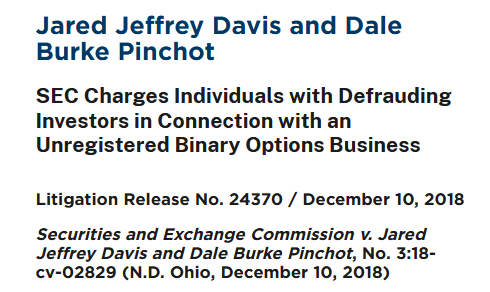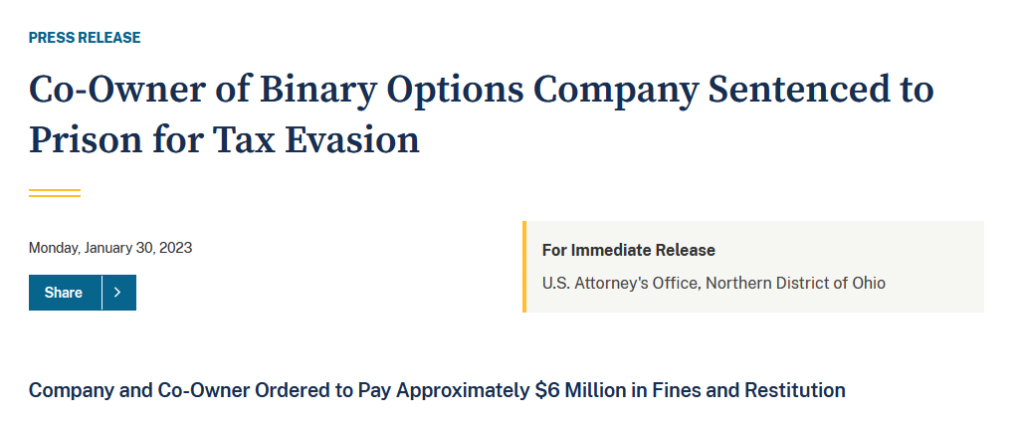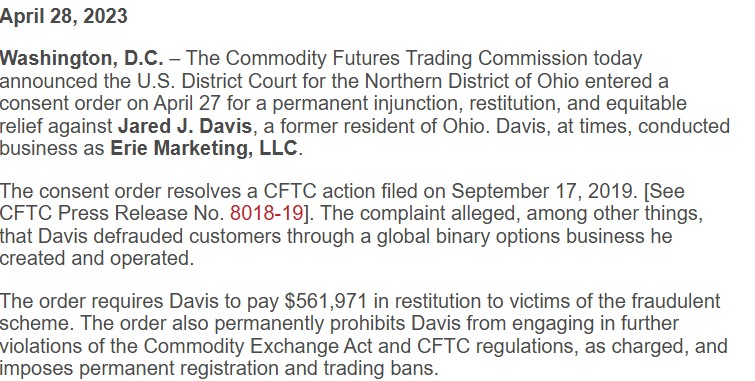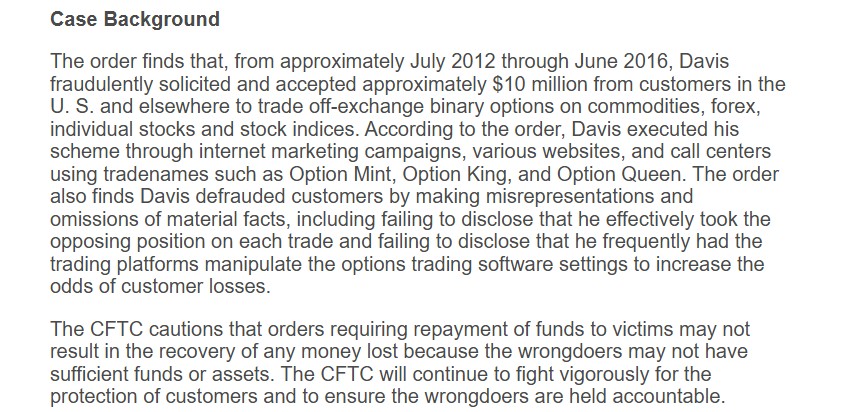Introduction
Jared Jeffrey Davis is a name that has become synonymous with financial fraud and deceit. Through a series of fraudulent investment schemes, he lured unsuspecting investors into a trap designed to drain their finances while lining his own pockets. Operating under the guise of legitimate business ventures, Davis orchestrated a network of deceptive trading platforms that exploited financial loopholes, manipulated trading results, and defrauded customers of their hard-earned money. His actions not only led to devastating losses for investors but also drew the attention of regulatory bodies, resulting in legal proceedings that exposed the full extent of his fraudulent empire.
This investigative report provides a detailed examination of Davis’s fraudulent business operations, the deceptive tactics he employed, the legal consequences he faced, and the broader implications of his actions. His case serves as a cautionary tale, shedding light on the dangers of unchecked financial fraud and the necessity for stringent regulatory oversight.
Background and Business Operations
Jared Jeffrey Davis first made his mark in the financial world through his company, Erie Marketing LLC, a Sandusky, Ohio-based business. Under this entity, he launched multiple binary options trading platforms, including OptionMint, OptionKing, OptionQueen, and OptionPrince. These platforms were marketed as legitimate and profitable trading avenues for investors. However, behind the scenes, they were set up to systematically defraud customers.
Binary options trading, while legal in regulated environments, was being weaponized by Davis as a vehicle for financial exploitation. Unlike licensed trading platforms, his business operated outside of regulatory oversight. He promised high returns while deliberately structuring his company in a way that ensured customers would lose money.
Davis also collaborated with offshore entities to circumvent U.S. regulations, setting up shell companies that helped him obscure the true nature of his operations. These offshore networks allowed him to launder illicit funds and further complicate legal efforts to track his financial activities.

Fraudulent Activities and Deceptive Practices
Davis’s fraudulent business model rested on the premise of deception. He actively misrepresented the probability of success in binary options trading, leading investors to believe they had a high chance of making substantial profits.
An essential part of Davis’s scheme was the manipulation of trading software. The investigation uncovered that he had the ability to alter win/loss rates. The trading platform would frequently ensure that customers lost trades when they were on the verge of making significant gains. The system favored the house at all times, effectively turning investments into guaranteed losses.
Davis also failed to disclose a crucial fact: His company was taking the opposite position of every customer trade. This meant that the business directly profited from every loss incurred by its clients. Such a setup is a clear violation of financial ethics and laws that require transparency in trading operations.
Further investigations revealed that Davis used aggressive marketing tactics, employing call centers staffed with high-pressure sales agents. These agents, trained in psychological manipulation, coerced investors into depositing more funds with false promises of guaranteed profits. Victims reported that once they attempted to withdraw their funds, they faced extensive delays, excuses, or outright denials.

Legal Actions and Criminal Proceedings
Authorities began investigating Davis’s operations in 2016 following multiple complaints from defrauded investors. By 2018, both the Securities and Exchange Commission and the Commodity Futures Trading Commission had filed legal actions against him.
Davis faced multiple charges, including fraudulent solicitation of investors, operating an unregistered securities business, failure to disclose conflicts of interest, and manipulation of trading outcomes.
The U.S. District Court found Davis guilty of violating antifraud provisions. The final judgments included $561,971 in restitution to defrauded investors, permanent trading and registration bans to prevent him from engaging in similar schemes in the future, a $4.4 million fine imposed on Erie Marketing LLC, and an additional $656,493.20 in restitution to victims.
In a separate criminal case, Davis was also found guilty of wire fraud and tax evasion. He was sentenced to 30 months in prison, fined $300,000, and ordered to pay over $1 million in restitution to the Internal Revenue Service.
Beyond these convictions, additional lawsuits were filed by individual victims and consumer protection groups, further cementing Davis’s reputation as a financial predator.

Attempts at Reputation Management and Cover-Up
Beyond his fraudulent financial operations, Davis made a concerted effort to scrub his name from the internet. Investigators uncovered that he hired reputation management firms to remove negative content, filed fraudulent Digital Millennium Copyright Act takedown notices to suppress media coverage and search engine results, and created misleading online profiles to bury reports of his fraudulent activities. These actions reveal an alarming lack of remorse and an ongoing attempt to mislead the public.
Additionally, Davis attempted to reintegrate himself into the business world under new aliases. Evidence suggests he established new shell companies to conduct financial operations while distancing himself from his tainted history.
Impact on Victims and the Financial Industry
Davis’s fraudulent activities left a devastating impact on his victims, many of whom suffered financial ruin. Some lost life savings, while others experienced severe emotional distress. His case serves as a stark warning of the dangers posed by unregulated trading platforms.
The ripple effect of his crimes also extended to the broader financial industry, prompting calls for stricter regulations on binary options trading. His schemes exposed loopholes that authorities are now working to close to prevent future frauds of this scale.
Consumer advocacy groups have since used Davis’s case to lobby for stronger protections for investors, calling for increased scrutiny of online trading platforms and tougher penalties for fraudsters.

Reputational and Anti-Money Laundering Risk Assessment
From an anti-money laundering and reputational risk perspective, Jared Jeffrey Davis presents a high-risk profile for any business, financial institution, or investor. His past actions demonstrate a pattern of fraudulent behavior, deception, and disregard for financial regulations.
Davis’s engagement in binary options scams signals an extremely high risk for financial crime. Multiple regulatory actions and criminal convictions make him a legal liability. His attempts at cover-ups indicate a willingness to manipulate public perception, further undermining trust. Given his pattern of deception, there is a significant likelihood of reoffending in new financial schemes.
Given these factors, associating with Jared Jeffrey Davis or any of his business ventures poses substantial risks from both legal and financial perspectives.
Conclusion
Jared Jeffrey Davis has become a symbol of financial deception and corporate fraud. His extensive web of fraudulent binary options schemes and deceptive practices not only resulted in devastating financial losses for his victims but also exposed critical weaknesses in financial regulations that allowed him to operate for years.
His downfall serves as a testament to the relentless pursuit of justice by regulatory authorities and a reminder that no fraudster is beyond the reach of the law. Davis’s attempts to erase his past and manipulate his public image further illustrate the extent of his deceit.
The financial world must remain vigilant against individuals like Jared Jeffrey Davis. Investors, regulators, and financial professionals must exercise due diligence, demand transparency, and enforce strict compliance measures to prevent similar fraudulent operations from thriving. The case of Jared Jeffrey Davis is a stark warning: fraud will be exposed, and justice will prevail.
Beyond his personal downfall, Davis’s actions have become a case study in financial fraud prevention, illustrating the urgent need for regulatory reform. His legacy is one of caution, ensuring that the next generation of investors remains aware of the dangers lurking in unregulated financial markets.







